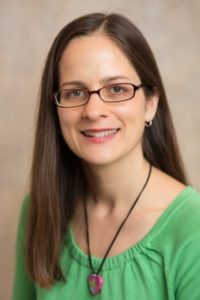POSTED IN: General Info
TAGS: Caregiving
Share this

My journey into this field began 15 years ago when I interned with Haven House Hospice. I felt at ease working with folks nearing the end of life and felt drawn to the other professionals engaged in this work. During my internship, I realized that I wanted to become a hospice social worker. I worked for hospice for several years after getting my MSW and then got an opportunity to join Hurley Elder Care Law in 2009. Over the past 15 years I have developed an obsessive desire to understand more about our long term care system and how folks can age and die well. The legislation, the policies, the organizations, the motivations, and the people in this world fascinate me, and I love being able to help families navigate through this complex and bewildering system. My story of how I became involved in elder care and hospice has nothing to do with personal experience. I am not one of those social workers who was inspired by a helping professional or from an experience caring for a family member. In fact, it was only two years ago that I realized that I even had a story of caring for a loved one.
When I was 12, my mother’s mom moved into our house. After 10 years of living on her own after my grandfather died, it was decided that my grandma could no longer live on her own. She had a couple of falls and a few broken bones, she wasn’t eating very well, and she was no longer safe behind the wheel of a car. My mom, one of only two children, became the primary caregiver of her mother; and I’m not sure she even looked for alternatives. Did she think about a personal care home? Were there neighbors or an Area Agency on Aging that could have helped my grandmother stay in her own home longer? This is the first of several decisions that was made with no input from professionals. My grandmother lived an awful existence in our home. She was fed and surrounded by family; but she rarely interacted with us, and she always complained of being ill. My mom tried to make her happy, tried making her favorite foods, and tried taking her on fun adventures. I have few memories of my grandma smiling and almost zero memories of her taking an interest in me or my siblings. We co-existed with her, and I’m sure my mom was doing everything she could think of to do. She did it almost all alone and never sought any professional input. My grandmother saw a doctor regularly, and I now understand that he was ageist. He told my mom things like, “At her age, we don’t really worry about her diabetes,” and, “Of course she’s depressed, who wouldn’t be?” I cringe now with the knowledge that she was underdiagnosed and undertreated for both diabetes and depression (and who knows what else). I wonder how her last few years could have been if those conditions had been well-managed.
Unfortunately, my grandma slowly faded away in our home until she was so weak that she required a hospitalization and then a stay at a skilled rehab facility. While in the nursing home, she had a heart attack and went back to the hospital. She had a stroke while on the table in the operating room, and they kept her alive long enough for us to come say good-bye. My last image of her was lifelessly laying on a gurney hooked up to machines. It seemed so wrong and inhumane at the time; and now, as a knowledgeable advocate for families, I am outraged by the whole series of unfortunate events. My grandmother’s story is an example of how 28% of all Medicare dollars can be spent on those in the last year of life. She received invasive, expensive care at the end of her life, and I wonder if anyone ever mentioned hospice or palliative care. Probably not in 1996 in rural Kentucky.
My grandmother’s journey is not what led me to do the work that I do, but her situation is what I hope most families can avoid. My mother, the primary caregiver of her mother, had a full time job and four children to raise on her own. She then added an aging parent to her household, and she floundered through this time with no direction or professional input aside from the ageist MD. This is especially the part of the story that I wish had been different. No family has to deal with the complex needs associated with multiple medical issues nor the unique needs of a vulnerable older adult alone. There are many professionals available to offer support, guidance, recommendations, and resources. My mom didn’t know what she didn’t know—she didn’t know what or who to ask. I think that my family’s story could have been different and that my grandmother could have had better years at the end of her life. Hurley Elder Care Law is one of the many professionals helping families avoid stories like these. I am so proud of the work Hurley Elder Care Law has done, and I am so grateful to get to play a role in this work. If you would like to learn more about how Hurley Elder Care Law can help your family, please give us a call for a complimentary phone consultation at (404) 843-0121. If you have any questions for me, please email me at mallen@hurleyeclaw.com
Share this
Subscribe to our blog and monthly newsletter.










